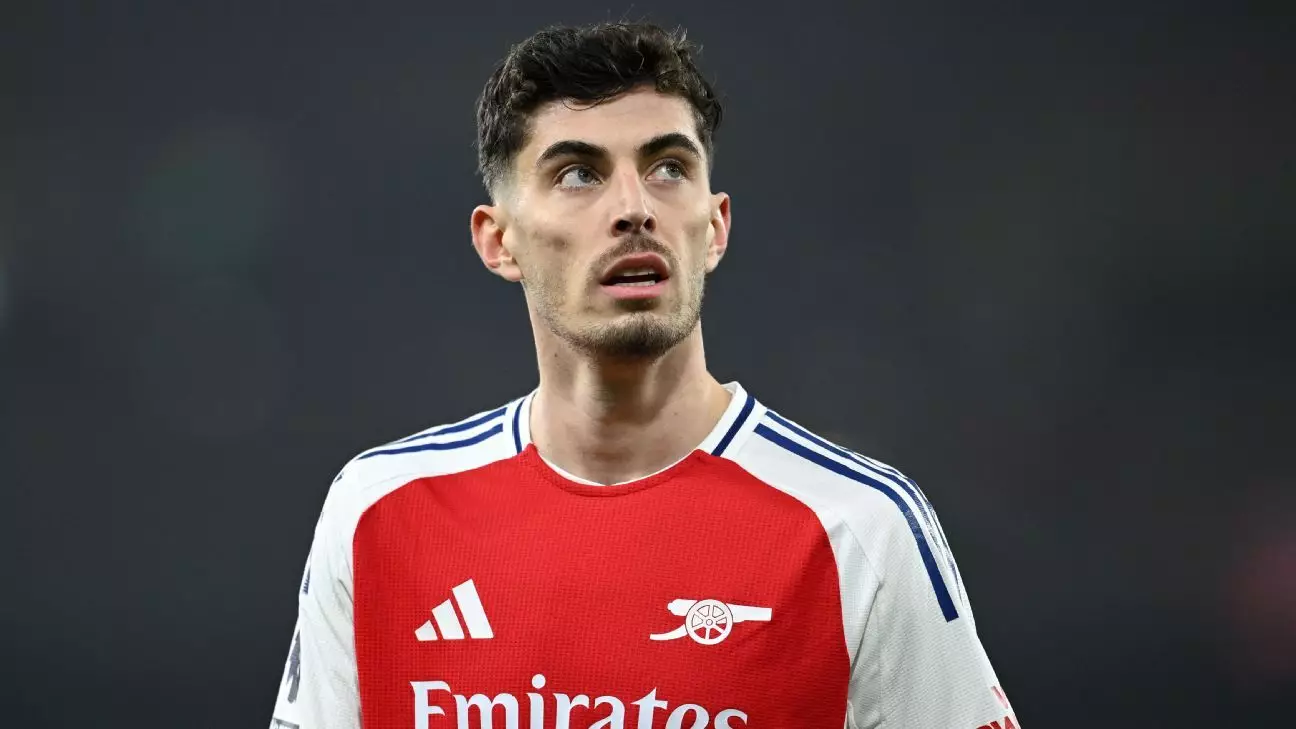Arsenal finds itself at a crossroads similar to one faced three seasons ago, with renewed debates surrounding the need for a striker as the January transfer window approaches. In 2021, the abrupt departure of Pierre-Emerick Aubameyang to Barcelona forced the club into a crucial decision-making process regarding a replacement. Rather than dipping into the market for a subpar option, Arsenal opted to rely on its existing squad. This decision ultimately proved costly, with missed opportunities costing them a top-four finish by a mere two points.
Arsenal’s management has historically upheld a philosophy entrenched in patience and prudence. During Mikel Arteta’s tenure, the club has excelled in cultivating homegrown talent and making judicious signings, resulting in a transformation from top-four hopefuls to formidable title contenders. However, the price of this restraint was glaringly evident in the 2021-22 season when the Gunners fell short of Champions League qualification despite finishing in fifth place. With only 61 goals scored, they struggled to keep pace with the attacking prowess of rivals like Manchester City and Liverpool, who amassed 99 and 94 goals, respectively.
This context is vital as the club contemplates future recruitment strategies. The recent news of their interest in Martín Zubimendi of Real Sociedad signals a proactive approach towards bolstering their squad. Yet, a glaring gap in their attacking capabilities has become increasingly apparent as they head into a crucial juncture of the season.
As the Gunners attempt to navigate their season, one cannot overlook the ongoing struggles of their frontline. Despite boasting a record-breaking 91 goals last season, the emergence of similar patterns—characterized by stunted attacking phases and an over-reliance on set pieces—is raising alarms. Although they managed to secure a recent victory against Tottenham, the fluidity and creativity originally characterizing their play seem to have dissipated, leaving Arteta’s strategy open to critique.
The recent match against Aston Villa was emblematic of this worrying trend. After taking an early lead, Arsenal succumbed to defensive lapses, conceding two late goals that robbed them of critical points, reminiscent of past mistakes. As the Premier League title seems tantalizingly within reach, this inability to finish matches effectively could prove catastrophic.
The departure of key players, such as Jorginho and Thomas Partey, is looming, with the team already witnessing an exodus of injured stars like Bukayo Saka and Gabriel Jesus. Despite impressive young talent such as 17-year-old Ethan Nwaneri stepping in, the sheer inexperience of such players reflects a potential fragility in squad depth. The absence of established players has led to an over-reliance on singular avenues of attack, a situation Arteta will need to address urgently.
Arteta’s preference for versatile players raises questions about who would fit into their plans as they search for reinforcements. The Gunners’ summer interests in strikers like Benjamin Sesko have fallen flat, with emerging low-cost options proving elusive. While reports suggest interest in various players—including Dusan Vlahovic and Jonathan David—a theme of hesitation persists.
With Liverpool currently outpacing Arsenal and maintaining a four-point lead, the Gunners are faced with a critical choice: will they act decisively in January or risk repeating past mistakes? The lost opportunity of not securing a striker last summer, particularly after the failed pursuit of a replacement for Aubameyang, serves as a cautionary tale. Moreover, the imminent financial pressures under UEFA’s regulations, paired with the question marks over potential departures, make now the right time for urgent action.
Sources suggest that both Alexander Isak of Newcastle United and Viktor Gyökeres could be viable options, but their respective clubs are reluctant to negotiate at this juncture. However, the shifting dynamics of European football may alter the landscape of potential acquisitions, making the upcoming weeks pivotal.
As Arsenal approaches this transfer window, the stakes could hardly be higher. A strategic pivot focusing on immediate attacking reinforcements could revitalize their push not just for a league title but also for a sustainable future. The fans are restless, and the urgency for change is palpable. In a season that might define the club’s direction for years to come, the time for action is now—before yet another opportunity slips through their fingers.

Leave a Reply